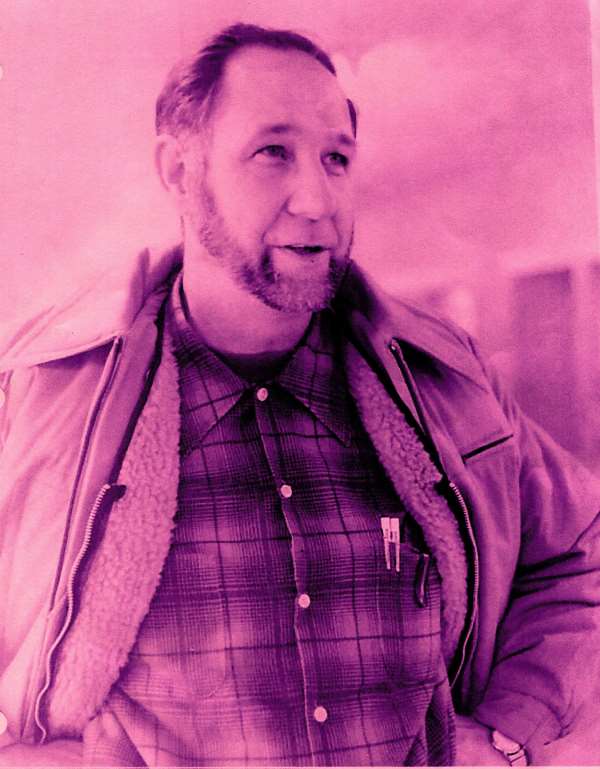
Dr. Thomas Bridge is an emeritus professor of geology, Emporia State University, Emporia, Kansas, USA. He received Ph.D. in geology from University of Texas in 1966. He has extensively worked as a teaching and research professor in the areas of General Earth Science, Mineralogy, Optical mineralogy, Petrology, Geochemistry and groundwater from 1966 to 1990. Dr. Bridge conducted many research investigations on the paleo earthquake, paleo river morphology, and surface and groundwater relationship in Kansas and adjacent states. Dr. Bridge jointly work with some of the AHWEEC's team members for finding the source, cause and solution to the arsenic disaster in Bangladesh, the largest environmental disaster in the history of human civilization. Dr. Bridge is one of the pioneer scientist for developing modern rainwater harvesting system in USA. He has been advising the AHWEEC/Humane Water's team members for developing sustainable water treatment technology for more than a decade.
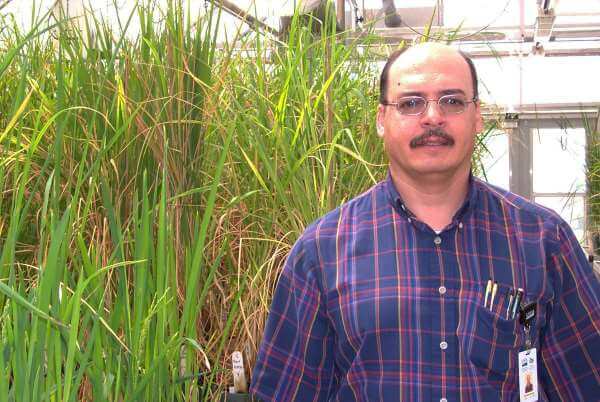
Dr Agrama has compiled an impressive amount of training and expertise in plant genetics and applying of modern research tools in molecular breeding including genotyping germplasm accessions, gene mapping, marker-assisted selection (MAS), association mapping, genomic selection and development of innovative experimental designs. His techniques were applied to identify economically important quantitative trait loci (QTL) associated with biotic and abiotic stress traits in many crops such as drought tolerance and nitrogen use efficiency in corn and arsenic problems in rice. The research that Dr Agrama has conducted combines genomic and agronomic performance information to improve the efficiency of plant breeding. His publications of more than 45 peer review articles have been published in many international journals. This record of outstanding scientific contributions showed that applied molecular and quantitative genetics became united with his conventional plant breeding experience. Dr. Agrama has been working with AHWEEC's team to find ways of reducing arsenic in agricultural irrigation water supply. The arsenic tainted agricultural irrigation water has been contaminating rice, vegetables, and fruits of vast areas of Bangladesh, India, Nepal and other arsenic prone nations for the last few decades. Dr. Agrama's expertise will help to solve water and sanitation problems of impoverished nations of Africa and other countries around the world.
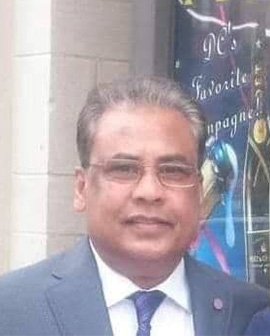
Mr. Meer Husain is a professional environmental geologist with Kansas Dept. of Health & Environment anda former adjunct professor of geology at Wichita Area Technical College, Cowley College and Butler Community College, Kansas. He received an M.S. in geology from Emporia State University, Kansas, USA and an M.Sc. in geology from the University of Dhaka, Bangladesh. Husain is the inventor of the "Mukti Water Treatment Technology" which treats arsenic, pathogens and other organic, inorganic contaminated water. Husain has been engaged on the investigation, remediation and monitoring of organic, inorganic and arsenic contamination projects for more than 25 years. Husain wrote many scientific articles regarding the source, cause and solution to the arsenic crisis and other contaminants disasters in Bangladesh and other countries. Mr. Husain presented many scientific articles in international conferences regarding the recent man made arsenic poisoning in groundwater and proper arsenic waste management from the arsenic removal filters in underdeveloped countries. Mr. Husain is currently conducting research in Bangladesh for developing "Underground Arsenic Removal Technology" for agricultural irrigation water supply.
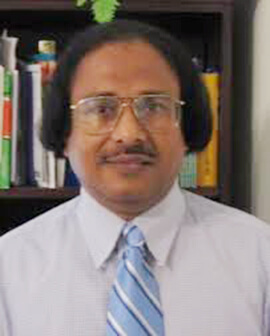
Dr. Miah M. Adel is a professor of Environmental Physics at the university of Arkansas, Pine Bluff, Arkansas. He is an interdisciplinary researcher having experience of studying river and bayou basins in deltaic regions on the following issues:
1. Causes, precautions, mitigation, solutions, and water policy related to arsenic contamination of groundwater
2. Water politics in cross-border water sharing issue
3. Integrated river basin management
4. Environmental changes following surface water scarcity
5. Outbreaks of environmental diseases in the wake of water scarcity
6. Climate changes due to water scarcity
7.Changes in downstream in flora and fauna following upstream water withdrawals
8. Rise of downstream malnutrition from upstream water diversion
9. Land-use and land-cover changes-induced environmental changes
10. Flood models in bayou basins
11. Downstream impacts from upstream dams and barrages on rivers and tributaries
12. History of environmental changes
Further studies are on near-geospace environment, best shelter from lightning strike, wind energy, etc. Dr. Adel has been working with the AHWEE's members for more than a decade for finding sustainable solutions to the arsenic disaster in Bangladesh, India, Nepal, Vietnam, Cambodia and other developing nations.
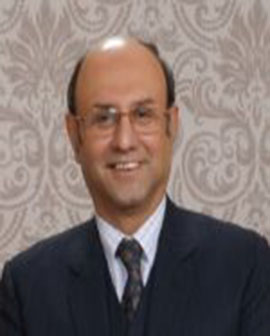
Mr. Irfan Ahmed is a Consultant Aerospace engineer with over 30 years’ experience. He has an M.S. in Aeronautical Engineering from Imperial College of Science and Technology (University of London) in London, England. He has worked for various companies such as Boeing, Bombardier, Cessna, Goodrich and B/E Aerospace.
Irfan was born in Tanzania, went to school and worked in England and since 1997 been living in the United States.
He has a varied background with a lifetime of involvement with charity and community organizations in England as well in the US.
His goal is to help people less privileged and facing the day to day challenges with the harmful changes in environmental and natural resources such as water scarcity and pollution.
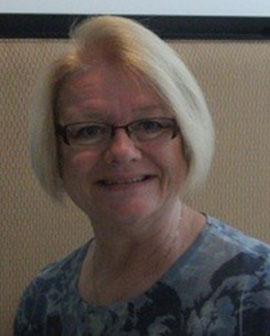
Patricia(Pat) holds a Bachelor’s Degree from Friends University in Education and a Masters Degree in Curriculum and Reading from Wichita State University . In addition to these Degrees Pat is certified to teach classes where English is a second language. This gives here flexibility to teach many facets of education. Pat has over 18 years’ experience as a class room teacher. This experience allows her to excel in class room management.
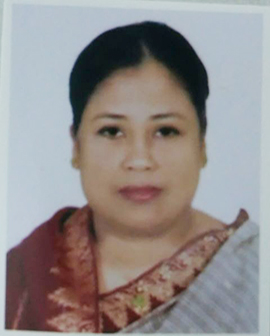
Prof. Sharifa Kamal has been associated with Humane Water since 2010. She has been helping Humane Water in solving many critical issues of Mukti Water Technology. She received Bachelor of Science and Master of Science from the University of Dhaka. Ms. Sharifa currently serving as a Chairman of Botany, Department of Tejgoan College under national university in Bangladesh. In her leisure time, she likes to cook for her family and friends and spent time tending plants in her garden. She likes to travel and help disadvantage population with educational resources.

Shafiul Faisol is a software developer currently working for Cargill based in Minnesota. He worked extensively on software development, web development, and process improvement. His interests include volunteer activity, sports, and reading. Shafiul worked with AHWEEC in finding solution to the arsenic disaster in Bangladesh, he also involved himself in installing several “Mukti water filter” in couple of villages in Bangladesh. He continues to help and advice project leaders and water users in proper operation and maintenance of Mukti Water Treatment Systems.
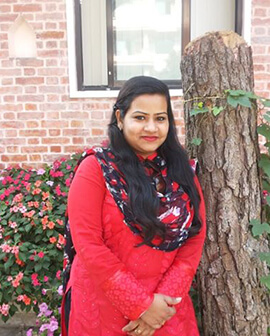
Ms. Humaira Naznin is working as a lecturer of BBA department at Tejgoan College under national university in Bangladesh. Prior to joining at Tejgoan college she worked with Banglalink Digital Communication for several year as a supervisor of a key team, a pioneer of telecom industry in Bangladesh.She is very friendly person, enthusiastic and positive thinker. Ms Humaira always see the opportunities to develop her professional industry to build a strong society. She likes cooking and traveling.
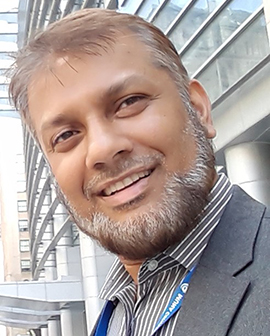
Dr. Kazi Sayeed is an energetic and enthusiastic educationist and researcher with a broad interest of subjects that includes not only Physics but also Astronomy, Mathematics, Computer Science, History and environmental science and technology. Serving is his most favorite hobby. He has expertise in higher level mathematics, statistics, computer programming and strong adaptability to technology. Dr. Sayeed received M.S. and Ph.D. in Physics from University of Cincinnati, Ohio and B.Sc (honours) and M.Sc in Physics from Umiversity of Dhaka, Bangladesh. Dr. Sayeed conducted research on Experimental particle Physics in collaboration with Belle Group, KEK, Tsukuba, Japan. Currently he is serving as an Asst. Professor (adj) at Borouh Manhattan Community College, CUNY, and Fordham University, NY.
Copyright © 2025 Humane Water. All Rights Reserved. Business Website Design & Hosting by Alpha Net. Powered By Alpha CMS